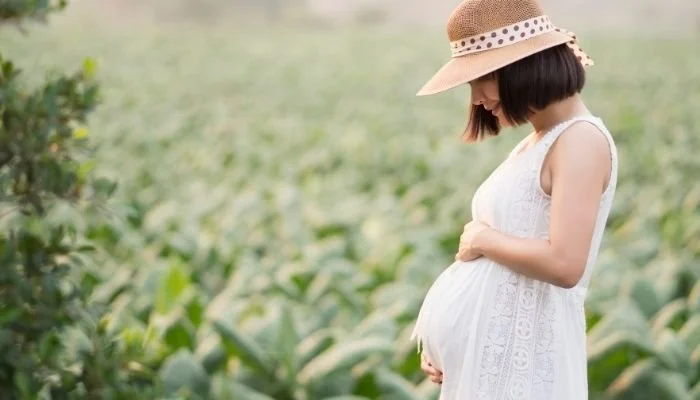Is It Safe To Eat Cassava, Sushi, Or Camembert During Pregnancy?
When you’re pregnant, all of the information on what you can and can’t eat, drink or do can get a little bit overwhelming. So we’re starting a new blog series where we’ll be answering all your burning questions about the do’s and don'ts of pregnancy!
Today, we’re answering the top asked questions about whether it’s safe to eat sushi, camembert cheese & cassava during pregnancy. Keep an eye out for the next post in this series: Is That Safe? Drinking Caffeine During Pregnancy.
Is it safe to eat cassava during pregnancy?
Cassava is a root vegetable and you’ll find it’s a staple in many countries around the world eaten either whole or ground into a flour for baked goods or tapioca. Generally, it's recommended to avoid eating cassava regularly during pregnancy or while breastfeeding as it’s ‘possibly unsafe’ and could be poisonous if eaten raw or improperly cooked. To learn more about properly cooking cassava, here is some guidance from Healthline!
Is it safe to eat sushi during pregnancy?
It’s usually best not to eat any raw or undercooked fish whilst you are pregnant as it can put you at risk for contracting listeria (which can harm your baby in-utero) and other parasites that are especially dangerous for pregnant women due to naturally weakened immune systems. If you’re pregnant, your risk of listeria is around 10 times more likely than others.
When it comes to sushi, though, the chances of getting sick are rather low. In the UK, the NHS says that it’s safe to eat “raw or lightly cooked fish in sushi if the fish has been frozen first” but that you should limit the amount of oily fish you consume and avoid raw shellfish altogether. Across the pond in the U.S., the view is slightly more conservative and the American College of Obstetricians and Gynecologists suggest that pregnant women should avoid all raw and undercooked fish to be on the safe side.
Don’t worry though, you can still enjoy some sushi whilst you’re pregnant and we’ve put together this post of The Best Pregnancy Safe Sushi Recipes To Satisfy Your Cravings!
Is it safe to eat camembert and other pasteurized cheese during pregnancy?
Good news! Not all cheeses are off-limits during pregnancy… But some are, which can make things a little confusing.
Why aren’t some cheeses safe to eat when you’re pregnant?
“Pasteurization” is a safety process that kills off potentially harmful bacteria by heating food to a certain temperature. Unpasteurized foods have not been pretreated and could be contaminated with bacteria such as Listeria or E. coli. Soft cheeses with a white coating on the outside (like camembert) have more moisture and this can make it easier for bacteria to grow if not pasteurized.
Unpasteurized dairy products can cause an infection harmful to pregnant women and their babies, and studies show that there is a small chance that listeriosis can lead to miscarriage, stillbirth, or make your newborn baby very unwell.
So what cheese can you eat when you’re pregnant?
In the UK, the NHS says that all hard pasteurized cheeses such as Edam, cheddar, and stilton as well as soft pasteurized cheeses like cottage cheese, mozzarella, and feta are safe for women to eat during pregnancy.
However, the NHS recommends that during pregnancy you should avoid “mold-ripened soft cheeses with a white coating on the outside”, including brie, camembert, and chèvre unless they are cooked until steaming hot. You should also avoid soft blue cheeses, any unpasteurized cows', goats', or sheep's milk, and foods made from unpasteurized milk.
If you’re in the US, most of the cheese you’ll find already comes pasteurized. But you may still come across unpasteurized cheeses at restaurants, farmer's markets, and grocery stores. You should avoid unpasteurized soft cheese and anything made with raw, unpasteurized milk. If you enjoy hard cheeses like cheddar or parmesan, and soft pasteurized cheeses, these are safe and tasty to eat while pregnant.
Farmers may individually test their milk, but a negative lab test can’t guarantee that the milk, or the cheeses it’s made from, are safe from bacteria. Bacteria grows rapidly and contamination can be missed in a lab test, which is why unpasteurized cheeses should be avoided during pregnancy.
Keep an eye out for the next post in our new series Is That Safe? where we’ll be talking about all things caffeine! In the meantime, drop us a comment to let us know what you’d like to hear about next.

